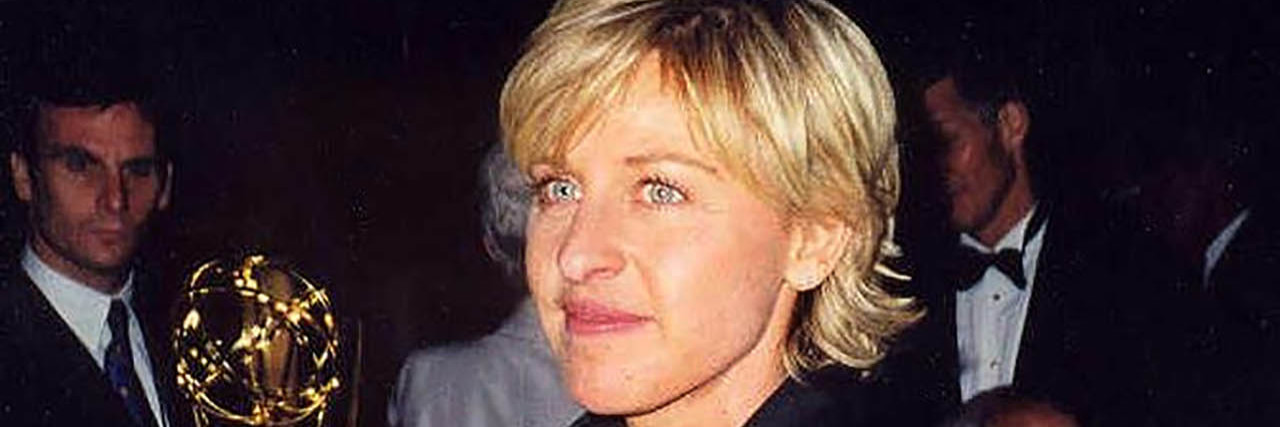Ellen DeGeneres Sought Professional Help After Being Bullied for Coming Out
While Ellen DeGeneres is known for dancing on her show and telling people to “just keep swimming” as the voice of Dory in “Finding Nemo,” the talk show host opened up to Good Housekeeping this week about a time in her life that wasn’t so positive — right after she came out.
DeGeneres publicly came out as a lesbian in 1997, and her sitcom, “Ellen,” was soon after canceled. Both the canceling of her show and the bullying she received led to a period of depression. She told Good Housekeeping:
The bullying I endured [in Hollywood] after I came out made up for the lack of it during my childhood… I moved out of L.A., went into a severe depression, started seeing a therapist and had to go on antidepressants for the first time in my life…It was scary and lonely. All I’d known for 30 years was work, and all of a sudden I had nothing. Plus, I was mad. It didn’t feel fair — I was the same person everyone had always known.
For those who’ve had to “come out” about their sexual orientation, this bullying, loss of opportunity and consequential depression, unfortunately, might be familiar. According to the National Alliance on Mental Illnes, folks in the LGBTQ community are almost three times more likely than others to experience a mental health condition such as major depression or generalized anxiety disorder, with societal stress and marginalization no doubt an influencing factor.
That’s why, even though times have changed for DeGeneres and in our country, it’s important for celebrities like DeGeneres to “come out” about the mental health affects of coming out. According to The Trevor Project, lesbian, gay and bi adolescents and adults have two to six times higher rates of reported suicide attempts compared to comparable straight populations. Gay folks young and old should know it’s OK to seek support if you’re not living in an accepting environment like Hollywood was for DeGeneres in the late 90’s. This might mean talking to a counselor or removing yourself from a toxic situation.
In a piece about what it’s like having a mental illness in the LGBTQA+ community, Mighty community member Ryan D. said:
[I] wish they would understand how hard the LGBTQ community gets bullied, picked on and verbally abused by others and how it affects them in many different ways… we are just normal people trying to live our life as any other people and just want to be accepted for who we are, not what we are stereotyped as.
DeGeneres told “Good Housekeeping” that eventually, meditating, working out and writing helped her climb out of depression. “I can’t believe I came back from that point,” she said. “I can’t believe where my life is now.”
If you’re someone in the gay community struggling with bullies or with your mental health, you are not alone and there is help. For resources, visit The Trevor Project.
If you or someone you know needs help, visit our suicide prevention resources page.
If you need support right now, call the National Suicide Prevention Lifeline at 1-800-273-8255, the Trevor Project at 1-866-488-7386 or text “HOME” to 741-741. Head here for a list of crisis centers around the world.
Lead image via Ellen DeGeneres’ Facebook page
Image via Creative Commons/Alan Light

